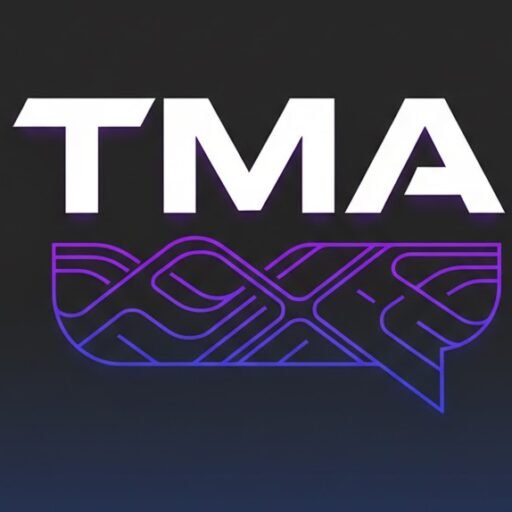The SEC’s Regulatory U-Turn: A Lifeline for Crypto Exchanges?
Fair Notice and Due Process: The Crypto Exchanges’ Core Defence
The SEC’s exemptive order, issued at the tail end of October, might appear to be a technical adjustment for conventional financial markets. However, it hands a significant advantage to crypto exchanges embroiled in legal battles with the agency. The order, which delays compliance deadlines for Regulation NMS until February and November 2026, acknowledges the difficulties faced by traditional exchanges in adhering to new tick-size rules, access-fee caps, and transparency mandates, especially during periods of government funding uncertainty.
For those unfamiliar, Regulation NMS governs the mechanics of US equity trading, influencing order routing and execution. Amendments were adopted back in December 2022, but were partially stayed pending judicial review. The recent order provides temporary relief, pushing deadlines into 2026, as the SEC concedes that exchanges can’t realistically implement these changes amidst funding lapses. It’s the principle at play here that matters most for the crypto sector.
Echoes of Inconsistency: Crypto’s “Fair Notice” Argument
Kraken, Bittrex, and Binance have all previously argued that the SEC failed to provide “fair notice” about how existing securities laws apply to crypto assets. In essence, they claim that punishing them for non-compliance is a violation of due process, given the lack of clear regulatory guidance. Judge William Orrick acknowledged the plausibility of Kraken’s defence in January 2025, stating the exchange “plausibly alleged” a lack of notice regarding the application of the Howey test to secondary-market token trades. Similarly, Bittrex argued that it lacked fair notice that listing tokens for spot trading could trigger exchange registration requirements.
As Judge Stephanos Bibas put it in January 2025 when remanding Coinbase’s rulemaking petition back to the SEC, the SEC “repeatedly sues crypto companies for not complying with the law, yet it will not tell them how to comply”. This regulatory ambiguity, acknowledged in the SEC’s Reg NMS order regarding traditional markets, directly mirrors the challenges faced by crypto platforms.
The SEC’s Contradiction: A Legal Lever for Crypto
The core of the argument is this: if the SEC grants established exchanges breathing room to adapt to new rules amid funding constraints and judicial review, the same logic should apply to crypto platforms. These platforms have faced enforcement actions while awaiting crypto-market-structure rules that, as of late 2025, remain undefined. The SEC has spent the last three years bringing enforcement cases against digital-asset platforms for operating unregistered exchanges and acting as unregistered broker-dealers. Yet, it has not finalized rules explaining what compliant crypto custody, trading, or token listing actually looks like.
Platforms argue they cannot comply with standards that don’t exist in written form. The SEC responds that existing securities law is clear enough – except when it comes to equity market plumbing, where the same agency just granted multi-month relief because participants need time and regulatory clarity to implement new obligations.
Looking Ahead: Litigation and the Potential for Exemptive Orders
Crypto litigators are now armed with compelling ammunition for future legal battles. Every motion for a stay, preliminary injunction hearing, and appeal brief can cite the SEC’s own admission that delayed compliance is essential for maintaining orderly markets when rules are contested and resources are limited. If the SEC believes orderly market functions require delayed compliance when rules are contested and resources are constrained, that principle applies with equal force to digital asset venues navigating enforcement while the Commission drafts crypto-specific frameworks.
The SEC’s order doesn’t explicitly mention blockchain or tokens, but it codifies the logic crypto defendants have been arguing since 2023: enforcement without finalized rules creates chaos, and relief is the proper remedy.
While these cases continue to litigate fair notice and due process in the meantime, the exemptive relief granted to traditional exchanges runs until February 2026 for fee-determinability rules and November 2026 for tick sizes and access-fee caps. Should the SEC eventually finalise crypto-market-structure rules, whether through formal rulemaking or settlement frameworks in major cases, expect similar exemptive orders to be issued, providing platforms with the necessary time to build compliant systems.
The Path Forward: A Roadmap for Crypto Compliance
The SEC’s Regulation NMS exemptive order provides a procedural blueprint for crypto lawyers over the next two years. It leads directly to the same exemptive-relief process the Commission employed to grant time to Nasdaq and the NYSE. The logic is clear: obligations cannot be enforced if participants cannot reasonably meet them because the standards are unwritten or the agency is still in the midst of rulemaking. This order essentially hands that argument the SEC’s own endorsement.
Whether this translates into a softening of the SEC’s stance on crypto enforcement remains to be seen, but the agency has undeniably provided a significant, and perhaps unintended, legal advantage to the very entities it is actively pursuing. It’s a development that could reshape the regulatory landscape for digital assets in the years to come.






